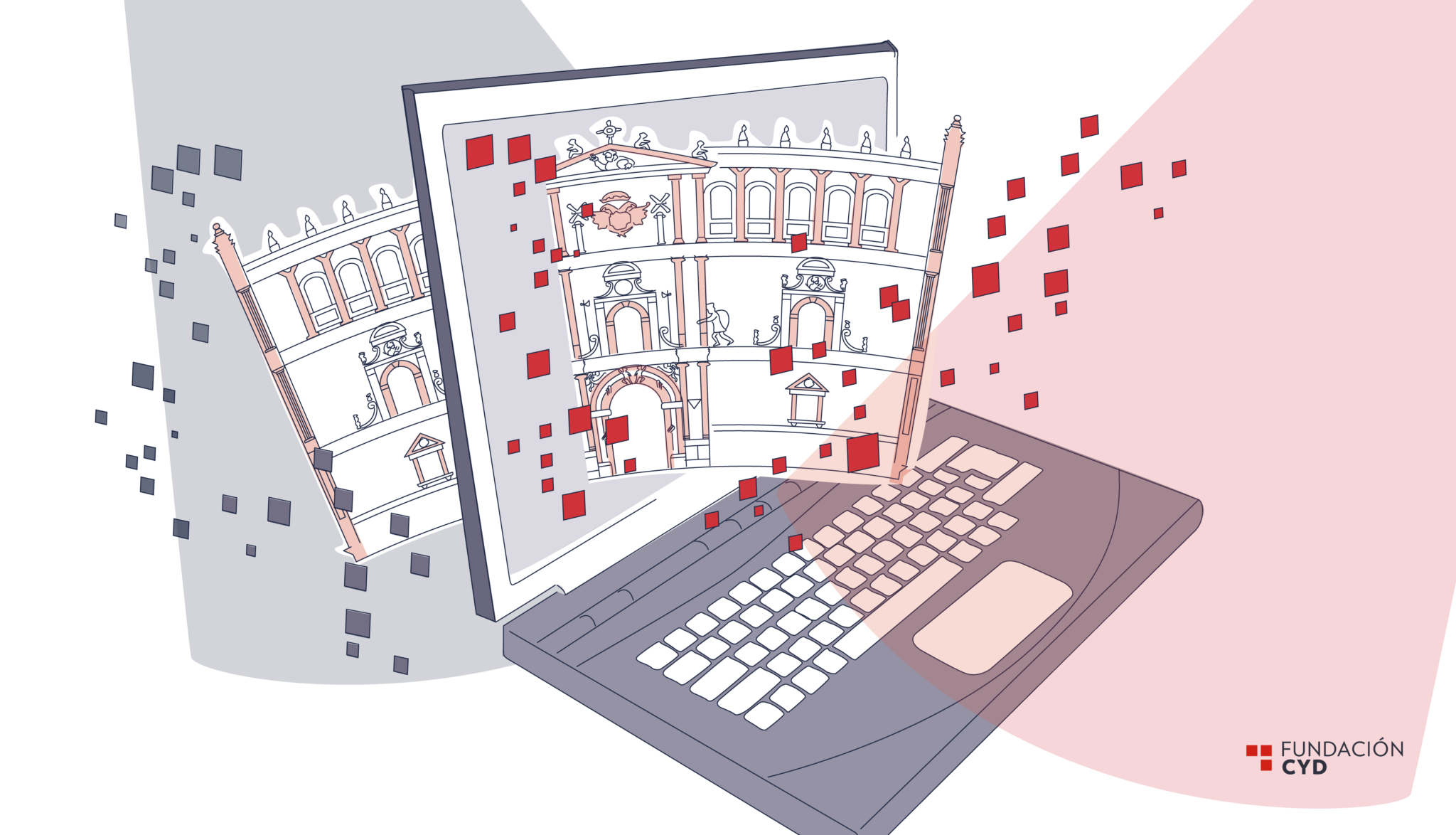The digitalisation of higher education: a year of revolution and disruption
Melina Díaz Christiansen, Fundación CYD
January 27, 2022 14:50 (CET)

During the public health emergency, which resulted in the total or partial closure of universities everywhere, each country reacted according to its possibilities to avoid students’ education being interrupted. Those institutions that already had the infrastructure in place or professors who systematically made use of digital technology and learning environments in their everyday teaching had an advantage when it came to reacting to this disruptive situation and soon managed to establish a new balance. However, the pandemic also revealed that higher education was not well prepared for digitalisation, which has led many to call for old and new inequalities, the role of the educator, contents and methodologies to be reconsidered in the pursuit of a new educational paradigm that places individuals and their training at the centre of our priorities.
There had been no previous parallel for the situation that arose in the educational system from the second term of 2020 onwards. University institutions had to adapt their traditional, largely face-to-face, model of teaching to an online model because of the impact of the Covid-19 pandemic all over the world. This driving force noticeably accelerated the process of digitalising higher education and, in addition, highlighted the usefulness of new online or hybrid teaching approaches, such as blended (or mixed-mode) learning and flipped classrooms.
As a result of the widespread application of online teaching in universities, a large number of studies have been carried out on the nature of its introduction, different policies have been implemented by different administrations, and there is now widespread reflection upon the benefits and drawbacks of this way of teaching, which has undoubtedly come to stay, even when the pandemic ceases to be a significant factor in the way society functions.
What is clear is that technology has made it possible to largely eliminate space-time barriers to learning, to respond to individual interests thanks to the vast amount of information available, to allow greater connectivity with people and institutions, and to facilitate a wide range of possibilities for training, from tutorials to degrees and master’s degrees, as well as MOOCs (Massive Open Online Courses aimed at an unlimited number of participants), NOOCs (Nano Open Online Courses, of short duration that focus on a specific subject), SPOCs (Small Private Online Courses, adapted to the needs of small groups of people), and personalised, modular, continuous and asynchronous training.
In this context, different questions arise about the frontiers of knowledge in the digital society. Like any educational innovation, its effectiveness, significance and real impact will depend on its ability to reach society as a whole. This means overcoming the digital divide, but also developing new skills, improving digital literacy, and redefining educational content and methods.
Higher education has gone through a tough awareness-raising process that has hopefully removed some of the overly simplistic myths and ideas about what digitalisation can bring. By now, almost everyone has experienced online education and the use of some virtual meeting software, as well as become much more aware of the necessary distinction between synchronous and asynchronous learning.
It is difficult to predict how higher education will evolve in the coming months and years, but there is a strong likelihood that this distance and online experience will have a long-term impact since it has shed light on, or at the very least mitigated, some of the technical and mental barriers that used to prevent the smoother integration of face-to-face and virtual learning. This issue is even on the agenda of many institutions that do not want to return to pre-crisis approaches but would prefer to retain some of the innovative options that have been taken advantage of in recent months by means of hybrid and highly flexible forms of teaching. Nevertheless, as this will be quite different from what was done in an improvised way during the pandemic, fully establishing such models will require further experimentation, development, student and staff engagement, as well as resources and investment.
Some of the changes that are already taking place show that the demand for shorter, more flexible courses, not only of courses leading to degrees, is increasing. This trend clearly predates the crisis but has certainly been enhanced by it. Another possible development is the increase in virtual formats that will complement rather than replace physical mobility. Since international exchanges are a fundamental feature of European higher education, this could make them more diversified, frequent and seamless to enable deeper shared inter-institutional collaboration in both education and research at the European and global level.
The higher education sector, which includes institutions that have different objectives, such as education, research and innovation by means of multidisciplinary and interdisciplinary approaches, has proven itself to be able to respond quickly and immediately to an unforeseeable crisis and, also, to be a key asset in order to promote a gradual transformation towards hybrid teaching for the benefit of the educational community in particular and society as a whole.




